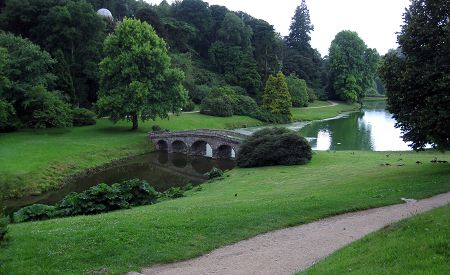393.001
Junior Proseminar
Liberty and the Natural Garden: Intercultural Discourse at the Dawn of the Modern Age
M 4:00pm-7:00pm
210 Tappan
3 Credit Seminar

By the 18th century, the great powers across Eurasia were investing major levels of thought and resources into gardens. This was so because, prior to the invention of World Fairs, the Olympics, or international sports, gardens were an important means of competing for "soft power" in the international arena. In addition, gardens served as a kind of worksheet for trying out new theories of society and nature, government and the social agency of individuals. In fact, some of the most important buzzwords in modern life were first worked out in relation to gardens in the 18th century. In this course we'll come to understand how this came about first by surveying the evolution of gardens in China: we'll trace the origins of the "natural" garden with its oppositional political and social connotations, and then learn what happened when this tradition of garden design clashed with European garden design in the 17th century. By reading together original 17th and 18th century documents, we'll see how competing interest groups in Europe imagined China's gardens in contrasting ways, and in the process we'll learn how to reconstruct the complex, intercultural discourse of society and nature that developed on the two ends of Eurasia during the 18th century. As a bonus, we'll witness the birth of radical new understandings of terms such as "nature" and "liberty." Students will have the opportunity to conduct original research using UM's Special Collections as well as online sources providing access to 17th and 18th century sources. In addition to class participation, grades will be based upon an oral progress report and a written term paper. No previous course work in Chinese art is required. Online reading materials.
3. C, D.

